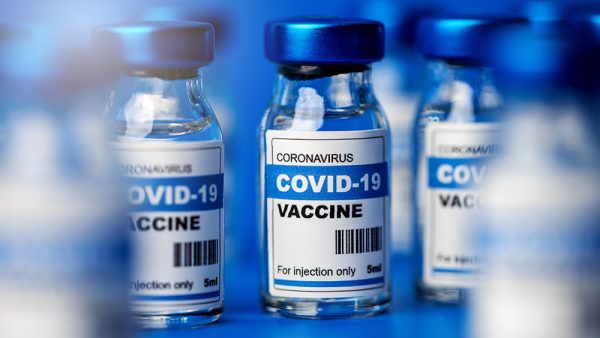 Parler
Parler Gab
Gab
Chronic hives – why even risk it?
Interestingly, the Danish study found that the risk of chronic urticaria may be higher with the Pfizer injection rather than the Moderna injection, though both are linked to the condition. Based on background rates of chronic hives, researchers determined that 175 people who took the Pfizer shot would develop the condition while 18 people who received the Moderna shot would develop the condition. "While the 105 reported cases after Pfizer vaccination came in under the expected number, the 55 reported cases following Moderna vaccination came in well above the expected number," reports indicate as to why the researchers focused more heavily on the Moderna shot in their conclusion. "The risk of developing chronic hives was calculated to be three times higher for Moderna recipients, compared to the general population. Researchers also stratified the risk by gender and age and found the risk was the highest – 5.2 times higher than the background rate – among young men. Most cases of chronic hives occurred from 7 to 13 days following vaccination." In a document describing their findings, Danish health authorities emphasized that what they uncovered validates a safety signal or a sign that a vaccine or set of vaccines causes a specific health issue, in this case, chronic urticaria. While more studies are needed to validate these findings, the scientists involved say they are pretty sure that the shots are causally responsible for this uptick in chronic hives, and that the mode of action has to do with the way the shots damage the immune system. The earliest safety signals linking COVID-19 injections to chronic hives were reported in Norway in late 2021. At the time, Danish authorities decided that the cases presented were not strong enough to establish a safety signal, but that has since changed with the results of this latest study. Danish authorities validated the safety signal by looking at medical records associated with the compensation system for vaccine injuries. Based on the findings, the European Medicines Agency's Committee for Medicinal Products for Human Use is recommending that new labeling be attached to Moderna's COVID injections warning that chronic hives are a possible side effect. "Non-chronic hives is already listed as a possible side effect," reports explain. "If the European Union Commission approves the change, the labeling will be updated to include chronic hives." Earlier studies have tied COVID-19 injections to chronic hives as well. One in the United States found that recipients who took Moderna developed severe and chronic skin problems similar to those uncovered in Europe. Swiss researchers also found in 2023 that chronic hives are a potential side effect of taking either Moderna or Pfizer. The latest news about health damage caused by COVID-19 injections can be found at ChemicalViolence.com. Sources include: TheEpochTimes.com NaturalNews.comBiden admin approves more stringent rules for “forever chemicals” in drinking water
By Laura Harris // Share
Mysterious radiation leak forces city in Russian Far East to declare state of emergency
By Richard Brown // Share
mRNA COVID jabs caused one in four Saudis to suffer heart issues, “bombshell” study finds
By Ethan Huff // Share
Sneaky QR code labeling HIDES GMOs in food
By Cassie B. // Share
SCARE TACTIC? Scientists warn that 100% fatal “zombie deer disease” could MUTATE and infect humans
By Kevin Hughes // Share
Top 6 illnesses that CONVENIENTLY DISAPPEARED during the “Covid-19” scamdemic
By S.D. Wells // Share
Governments continue to obscure COVID-19 vaccine data amid rising concerns over excess deaths
By patricklewis // Share
Tech giant Microsoft backs EXTINCTION with its support of carbon capture programs
By ramontomeydw // Share
Germany to resume arms exports to Israel despite repeated ceasefire violations
By isabelle // Share










